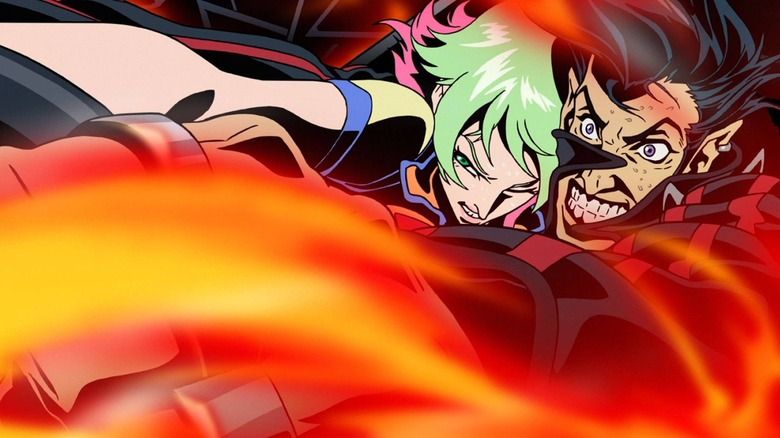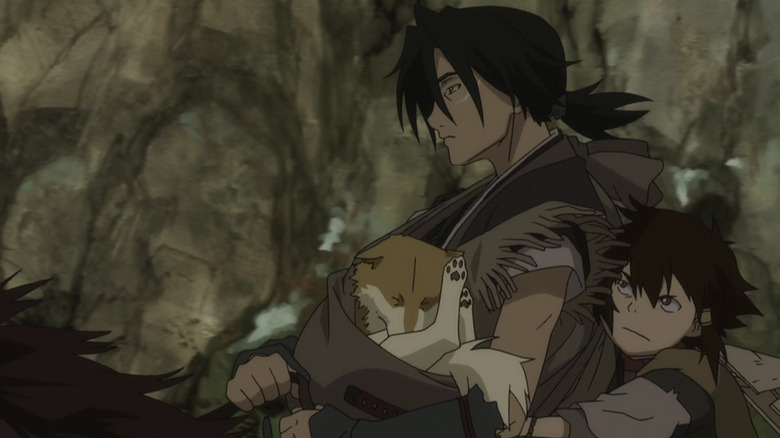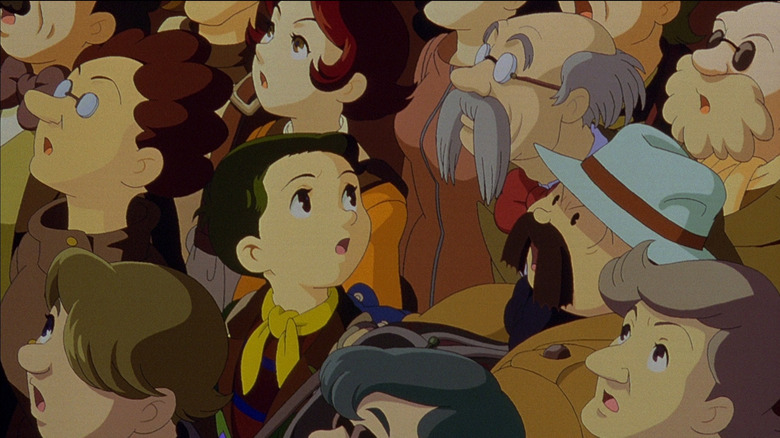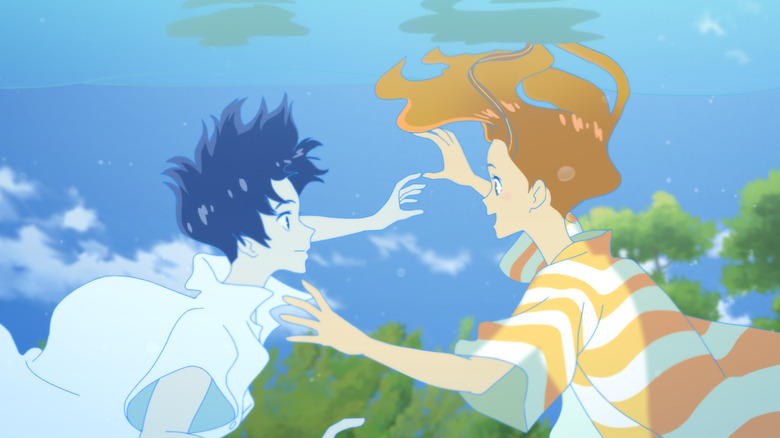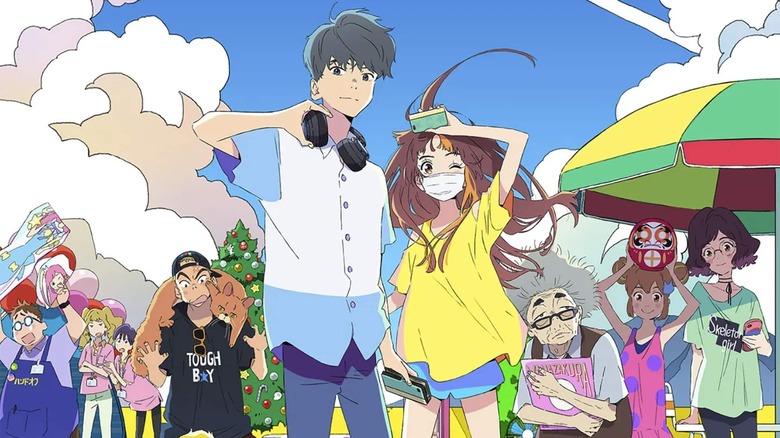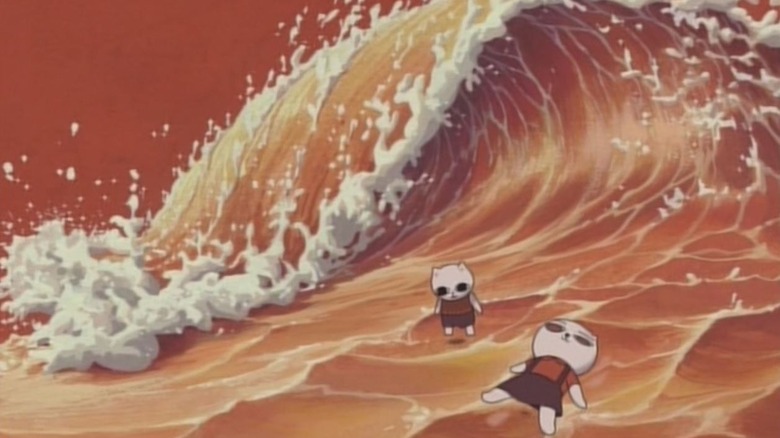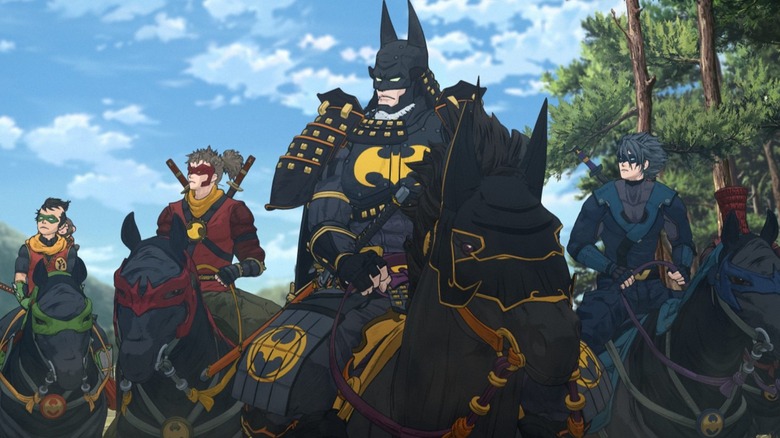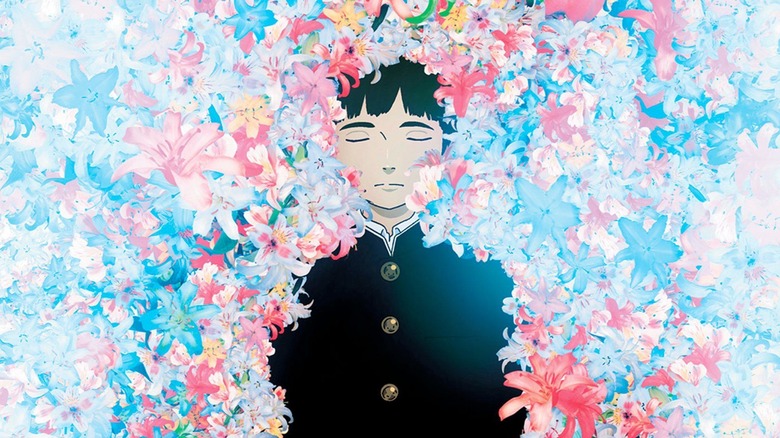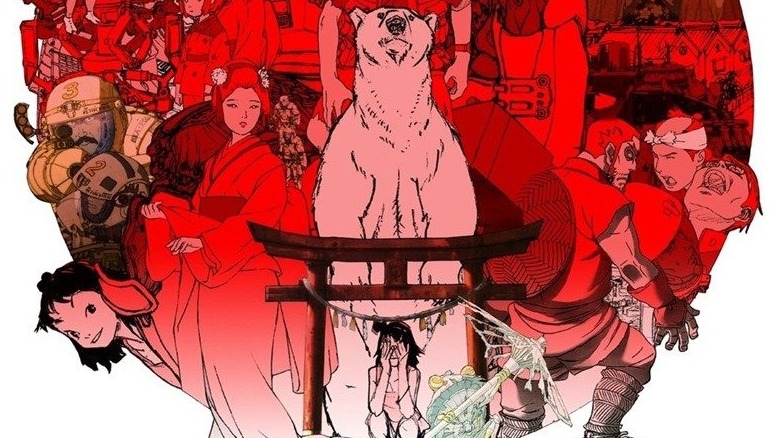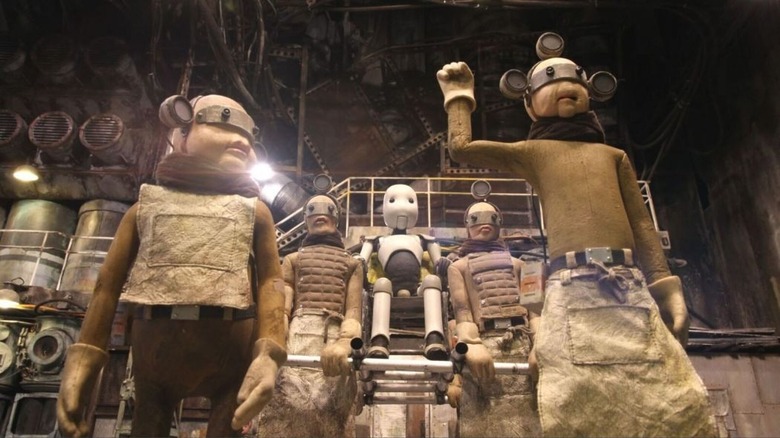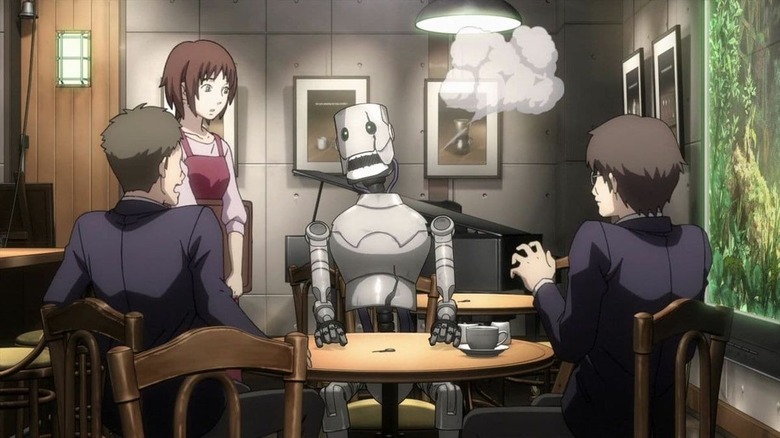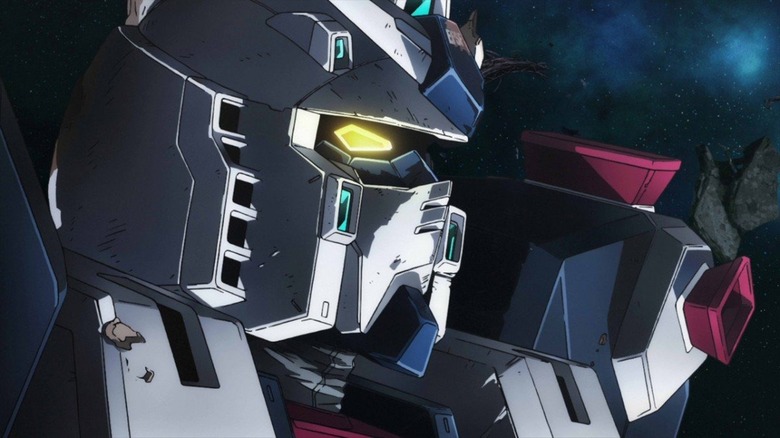Underrated Anime Movies You Need To Watch
There are few topics that inflame otaku arguments more than a discussion of which anime count as "underrated."
For some, "underrated" means something that wasn't as well-reviewed as they feel it should have been. For others, "underrated" gets used interchangeably with "underexposed," analyzing that which tends to be well-liked by the small fanbases who've seen it. But does "underrated" apply to something like "Project A-Ko" or "Robot Carnival," which most otaku of a certain age know, but younger fans don't? Does a slightly less popular Ghibli movie count as "underrated," despite being the product of one of the most beloved, high-profile studios in the world?
This list of underrated anime doesn't contain any Ghibli movies, and tries to avoid films which any particular generation of fans have canonized as classics. Instead, these are anime which either deserve to be considered classics or are at least highly recommended, but for various reasons failed to connect with the fandom as successfully as they should have. If you've seen all the big-name films, from "Akira" to "Your Name," and wonder where to go next on your anime journey, consider this your guide.
Redline
Had "Redline" been released a decade earlier, anime fans would be talking about it relentlessly. Takeshi Koike's intergalactic racing adventure, which premiered at film festivals in 2009 before its commercial release in 2010, is the exact sort of ultra-stylized action-packed sci-fi spectacle that people who got into anime via "Akira" and "Ninja Scroll" would adore. Seven years of production, however, found the release of this visual masterpiece out of sync with popular tastes, so it went mostly ignored.
For those who have given it a chance, however, "Redline" has become something of a cult classic, and for good reason. The race sequences (animated entirely through traditional hand-drawn techniques) are thrilling, and Koike's design and world-building are so imaginative that the downtimes between races are just as fun to watch. Anime studio Madhouse has made plenty of great anime, but since the lackluster response to "Redline," it hasn't attempted anything as singularly ambitious, which is a shame.
Sword of the Stranger
Released in Japan in 2007 and given a limited run in the United States in 2008, Masahiro Ando's "Sword of the Stranger" is another film that arrived at the wrong time to make an impact within the American anime fandom. It came out right when the 2000s anime bubble was bursting (its initial distributor Bandai Entertainment would go out of business a few years later), but before streaming helped the medium reach true mainstream accessibility.
"Sword of the Stranger" is an epic adventure about a nameless swordsman protecting Kotaro, an orphan suspected of fulfilling a prophecy, and his injured shiba inu Tobimaru. Set during the Sengoku period, during the wars between Japan and the Chinese Ming dynasty, the movie presents a fairly nuanced take on the conflict, with neither side coming off particularly well and the evils of xenophobia condemned. The action scenes are top-notch, with amazing animation courtesy of studio Bones.
Metropolis
Based on a 1949 work by "god of manga" Osamu Tezuka, while also incorporating plot elements from Fritz Lang's 1927 silent film of the same name (which Tezuka reportedly had not seen while writing his extremely loose adaptation), the 2001 movie "Metropolis" is among the most visually stunning anime ever made. Directed by Rintaro with a screenplay by "Akira" creator Katsuhiro Otomo, "Metropolis" combines retro art design with high-tech animation to create an incredible sense of atmosphere. The jazz soundtrack serves as an exciting, at times ironic accompaniment to the gorgeous action on display.
"Metropolis" got a fairly high-profile American release from TriStar Pictures in 2002 and earned positive reviews, with Roger Ebert calling it "one of the best animated films I have ever seen." However, it has rarely been celebrated as a "must see" anime film, and because of that has largely faded from the public consciousness. While "Metropolis" may not reinvent the wheel (there are plenty of other anime films about robots questioning what it means to be human), the power of its artistry deserves to be remembered and celebrated.
Ride Your Wave
Masaaki Yuasa is one of anime's great directors, but he has nonetheless struggled to achieve commercial success on many of his projects. He finally achieved mainstream recognition with the TV series "Devilman Crybaby" in 2018, as well as "Keep Your Hands Off Eizouken!" in 2020, but his most direct attempt at a mass market-friendly blockbuster, the 2019 film "Ride Your Wave," was met with disappointing box office and mostly unenthusiastic reviews. That's kind of sad, because "Ride Your Wave" is by far one of the best young adult romance anime to emerge in the wake of "Your Name."
The love story between surfer girl Hinako Mukaimizu and her firefighter boyfriend Minato Hinageshi is best left unspoiled, but have tissues on hand — it deals with some very heavy themes, even if Yuasa finds whimsical ways to deliver said themes. The character designs are more typically "anime-style" than Yuasa's other, more experimental works, but the quality of the animation is as outstanding as anything he's ever made, and features an action climax that's downright ingenious.
Words Bubble Up Like Soda Pop
Another young adult romance anime, "Words Bubble Up Like Soda Pop" was initially intended for theatrical release in 2020 but had to be delayed a year and released on Netflix due to the COVID-19 pandemic. Burial by the algorithm explains why this absolute charmer of a film wasn't more widely talked about, because it's hard to imagine most people who see it not enjoying it.
Directed by Kyohei Ishiguro (whose additional credits include "Your Lie in April" and "Bright: Samurai Soul"), "Words Bubble Up" centers around Cherry (a shy boy who writes haikus) and Smile (a social media star who hides her buckteeth behind a mask) and their budding relationship. This develops alongside an intriguing B-story where they help an old man track down a rare record album. The use of music, colorful artwork, and a sense of humor helps "Words Bubble Up Like Soda Pop" stand out from similar anime in its genre.
Cat Soup
Only a half-hour long and absolutely unforgettable, "Cat Soup" is a 2001 anime adaptation of the cult favorite manga by Nekojiru. Director Tatsuo Sato is famous for more traditional anime favorites like "Martian Successor Nadesico," but this short film's experimental style more directly resembles the later works of Masaaki Yuasa, who served as its co-writer and animation producer.
Describing the plot of "Cat Soup" is a largely futile task. It starts with protagonist Nyaako trying to retrieve the soul of his dying sister Nyaata from the great beyond, and it only gets stranger from there. There is no spoken dialogue, only word bubbles for speech and psychedelic music. The cat characters are adorable, but graphic violence and sexual inferences make it decidedly non kid-friendly. The end product is utterly deranged and borderline incomprehensible, yet often hilarious; in every way, it feels like if David Lynch made an anime.
Batman Ninja
Comparing critical and audience scores for "Batman Ninja" on Rotten Tomatoes, the former were far more positive about the 2018 Batman anime film. Blame hyper-serious Bat fans who cringe at any campy take on the character and 2D animation purists who can't stand the sight of CG anime. "Batman Ninja," in which the Bat-family and various super-villains are transported to feudal Japan, is absolutely ridiculous on every level — it's supposed to be. You don't hire the people behind "JoJo's Bizarre Adventure," "Kill la Kill," and "Afro Samurai" if you're looking for a normal Batman story.
If you can get on its silly wavelength, "Batman Ninja" is a blast. How can anyone who enjoys the absurd battles of "JoJo's Bizarre Adventure" not get a kick out of Robin controlling an army of monkeys to fight Joker's steampunk giant robot? All the wild action is brought to vivid life with some of the best CG animation to come out of Japan thus far. There have been a plethora of direct-to-video animated Batman movies over the years, but "Batman Ninja" is a unique experience that ranks among the best.
Colorful
Keiichi Hara spent decades directing the long-running "Doraemon" and "Crayon Shin-Chan" franchises before moving on to stand-alone movies like "Summer Days With Coo" and "Miss Hokusai." His most serious anime, and arguably his best, is the 2010 anime "Colorful," based on the 1998 young adult novel by Eto Mori (you definitely don't want to mix this up with the other, far more adult anime of the same title).
"Colorful" is a story told from the perspective of a recently-deceased soul being given a second chance at life. Watched over by Purapura, a spirit which takes the form of a little boy, this soul inhabits the body of 14-year-old attempted suicide victim Makoto Kobayashi and has to rebuild a life and connections. Given the intensity of the subject matter, it's understandable that the film can be somewhat divisive among viewers, but there's a lot of genuine beauty and inspiration to be found in this cinematic experience.
Short Peace
"Short Peace," released in 2013, is an anthology collecting four short films. One of them, Shuhei Morita's computer-animated Shinto fable "Possessions," was nominated for the best animated short film Oscar. Some might argue such a high honor should intrinsically disqualify "Short Peace" from an "underrated" list, but the feature as a whole doesn't get talked about nearly as much as similar anthology anime like "Robot Carnival" and "Memories."
While "Possessions" deserved its Oscar nomination, the greatest stand-out in this collection might be "Combustible," directed by none other than Katsuhiro Otomo. This tragic love story about an 18th-century aristocrat and a firefighter, based on one of Otomo's earlier manga, is stunningly animated in the style of ukiyo-e paintings. Another Otomo manga forms the basis of the longest short, Hajime Katoki's mecha war drama "A Farewell to Arms," while Hiroaki Ando's "Gambo" centers around an intense, violent battle between a demon and a polar bear. The whole film is available for streaming on HIDIVE.
Junk Head
"Junk Head" is the hardest film on this list to track down, and it's arguably a tie between it and "Cat Soup" for the title of the strangest. A true outsider passion project, Takehide Hori not only wrote and directed the stop-motion science fiction film, but did almost all animation and sound duties by himself. The first act was released as a short film in 2013; the feature length version premiered at festivals in 2017, with a final theatrical cut playing in Japanese theaters and at more film festivals in 2021. No wide American release has been announced yet.
Presented in a made-up language with subtitles, "Junk Head" presents a truly far-out future dystopia where humans have gained immortality but lost the ability to reproduce. A cyborg exploring the mutant underworld in hopes of helping humanity is worshipped by some mutants and violently attacked by others. This is a gruesome marvel of the stop motion craft that deserves to be seen.
Time of Eve: The Movie
"Time of Eve: The Movie" compiles the six short episodes of the web-series "Time of Eve" (released on Yahoo! Japan from 2008-2009 and streaming on Crunchyroll internationally) into a single feature film with a few additional scenes. The movie edition, which had a Blu-ray release successfully funded by Kickstarter, is the only version of "Time of Eve" with an English language dub available.
Perfect for fans of Isaac Asimov (whose laws of robotics are frequently referenced throughout the story), "Time of Eve" is a thoughtful work of science fiction following the stories of various patrons from "The Time of Eve," a cafe which doesn't discriminate between human and robot customers. Yasuhiro Yoshiura, whose subsequent works include the gravity-flipping "Patema Inverted" and the musical "Sing a Bit of Harmony," is a director sci-fi fans should be paying more attention to, and this might be his best anime to date.
Mobile Suit Gundam Thunderbolt series
Similar to "Time of Eve: The Movie," "Mobile Suit Gundam Thunderbolt: December Sky" and its sequel "Mobile Suit Gundam Thunderbolt: Bandit Flower" are compilation films combining episodes of a short web-series. Unlike "Time of Eve," the "Mobile Suit Gundam Thunderbolt" web-series is not available to stream outside of Japan, so the two movies are the only official way for international viewers to experience this underrated "Gundam" anime.
Based on the manga by Yasuo Ohtagaki, "Mobile Suit Gundam Thunderbolt" takes place simultaneously with the original "Mobile Suit Gundam" series. While familiarity with the reasons behind the One Year War would be helpful for fully appreciating the story, "Thunderbolt" generally works as a stand-alone story accessible to "Gundam" franchise newcomers. It's perhaps the darkest and most adult-oriented "Gundam" anime to date, with exceptional animation quality and a jazz score reminiscent of "Cowboy Bebop." Note that the second movie ends on a cliffhanger; hopefully the anime will receive a proper conclusion following the ending of the manga.

